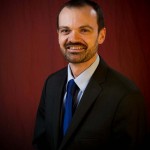Expressive qualities of mode in André Raison’s Premier Livre d’Orgue
A remarkable number of seventeenth-century French treatises describe the affective characteristics of the modes—particularly with reference to plainchant. Were the writers of these theoretical works merely describing a traditional system of meaning, or were these expressive qualities given consideration and written into newly composed works, such as alternatim organ versets? With reference to chant volumes edited by Guillaume-Gabriel Nivers (c. 1632–1714), and plainchant musical by Henry Du Mont (c. 1610–1684), this presentation highlights qualities in selected movements from André Raison’s Premier Livre d’Orgue (1688) that might show evidence of allegiance to the tradition of expressive modal characteristics.
Neil Cockburn is head of Organ Studies at Mount Royal University Conservatory and artistic director of the Calgary Organ Festival. He won First Prize at the 1996 Dublin International Organ Competition and has received numerous other prestigious awards, including the W.T. Best Memorial Organ Scholarship (UK), a scholarship from the Countess of Munster Musical Trust (UK), and the Lili Boulanger Memorial Fund Prize. As an organ soloist, he has given an all-encompassing spectrum of recitals on a wide range of instrument types, from all-Bach recitals on historically inspired organs to symphonic programs on Romantic instruments to concerts of entirely new works. He received his musical education at Oxford University (B.A. Honors, music); the Royal Northern College of Music in Manchester (Mus.M., organ performance, and the Professional Performance diploma, PPRNCM); the Conservatoire National de Région Rueil-Malmaison, France (Premier prix de perfectionnement); and the University of Calgary (Ph.D., musicology).

